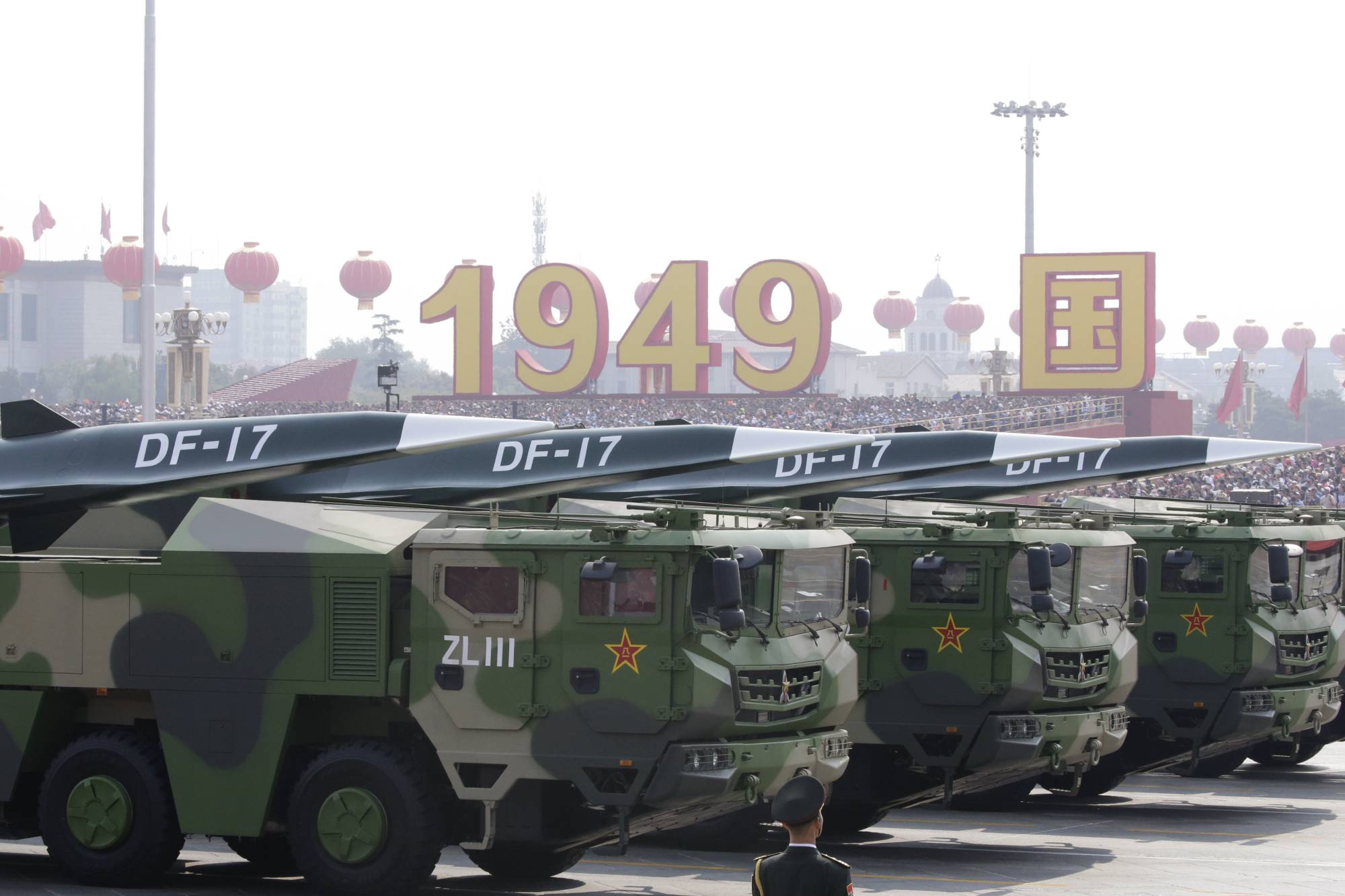For eight years, Prime Minister Shinzo Abe has been looking for ways around Japan’s pacifist Constitution to bolster the country’s military. And in his last full week on the job, he laid the groundwork for a plan to allow preemptive strikes on enemy bases.
Abe’s statement on missile defense Friday leaves a big piece of unfinished business for his top aide and likely successor, Yoshihide Suga. While few expect the longtime chief Cabinet secretary to share Abe’s zeal for amending the Constitution, he’ll be confronted with the same dilemma of how to counter growing threats from China and North Korea — and the same security demands from Japan’s sole ally, the U.S.
Abe called for alternatives to defend against ballistic missiles, saying that new policies should be decided by the end of the year. He offered vague language on whether that meant strike capability, but added the plan must abide by the country’s exclusively defensive security stance. He also questioned whether interception alone would be enough.


















With your current subscription plan you can comment on stories. However, before writing your first comment, please create a display name in the Profile section of your subscriber account page.